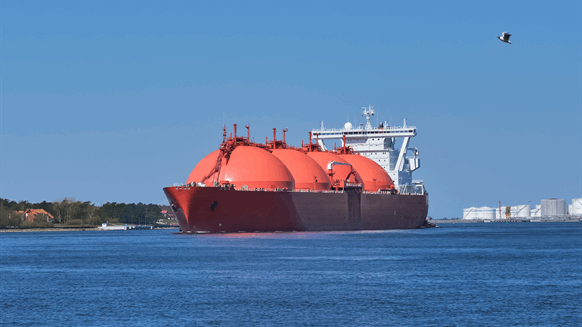The German government plans to move a controversial floating liquefied natural gas terminal from the coastal city of Lubmin about 50 kilometers (31.1 miles) across Baltic waters to the island of Rügen, doubling the planned capacity of its harbor
The ship, known as the Neptune, has been operational for just five months, and residents of Lubmin complain of high noise levels. Sending it to Rügen’s port of Mukran, where there are already plans for another LNG terminal, “would have significant economic and ecological advantages,” Economy Minister Robert Habeck wrote in a letter seen by Bloomberg. Deutsche ReGas, which operates Neptune, confirmed its stake in the port of Mukran.
Habeck will travel to Mukran on Friday for further talks on the plans, according to an Economy Ministry spokesman. In the letter addressed to his state regional counterpart, he argued that the two floating storage regasification units could be located so that the view would be minimally impaired.
Residents of both Lubmin and Rügen have complained about the environmental effects of the LNG facilities, and the Baltic island is particularly concerned about the repercussions for tourism. But Germany has embraced LNG as a way to fill its energy gap after Russia cut off pipeline supplies following its invasion of Ukraine last year. Three floating terminals are already operational in the country, including the one currently in Lubmin.
Deutsche ReGas will be the government’s sole partner to operate the Mukran port infrastructure, Habeck said in the letter, and Gascade will handle the pipelines. Energy giant RWE AG had previously lined up to build a floating terminal there, but was prepared to pull out of the project after disagreements over the exact location of the terminal.
A spokesman for RWE confirmed that the company is not involved in the government’s plans for a floating LNG terminal at the port of Mukran.
–With the assistance of Michael Nienaber and Josefine Fokuhl.


